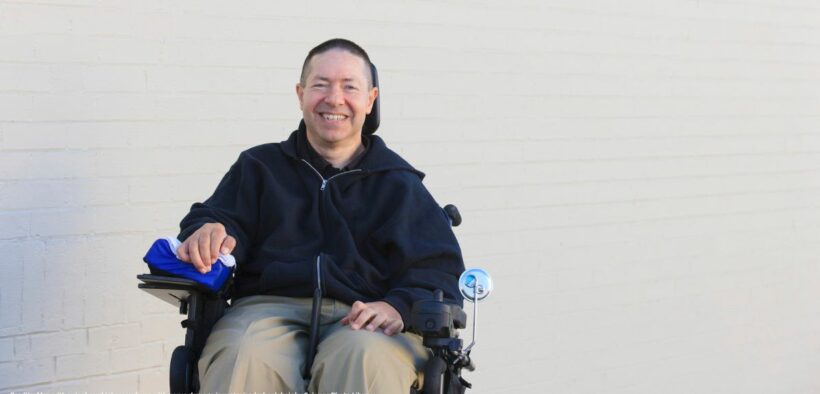Further supporting SpinalCure Australia’s quest for a cure for spinal cord injury (SCI), SpinalCure has been announced as a beneficiary partner of Hearts & Minds Investments (HM1), an Australian listed investment company that has a special focus on ‘impact investing’ for medical research.
With a strong philanthropic vision, HM1 is committed to providing significant financial support to leading Australian medical research organisations.
To maximise this support, instead of charging an investment management fee, HM1 donates a portion of the company’s Net Tangible Assets per annum. For SpinalCure, this translates to approximately $400,000 which will be injected into ground-breaking SCI research over the course of the initial two-year agreement.
Kathryn Borkovic, SpinalCure Australia CEO, thanked HM1 for facilitating the generous contribution and said that it represents a solid investment that will reap dividends for the many Australians who live with an SCI, as well as their families and carers.
“Since 2020 for every dollar invested in SpinalCure, $8 has been allocated to SCI research – which means that this injection of funds will go a long way in accelerating our path to finding a cure for SCI,” she added.
Currently, more than 20,000 Australians live with an SCI and the burden to the economy is huge – amounting to an estimated lifetime cost of $75.4 billion.
Beyond being unable to walk, the long-term impacts of having an SCI are also devastating such as a loss of bodily functions including bladder and bowel control and the mental health implications when a person loses their independence and freedom.i
“An investment in SCI research is not just an investment in science, it’s an investment in our collective future where recovery from an SCI looks set to become a reality through a number of life-changing treatments and transformative therapies that our researchers are exploring right now,” added Borkovic.
“SCI most commonly happens in car accidents, everyday falls and in sports.”
“Meaning it can happen to anyone, anywhere, at any time, at any age and it happens in the blink of an eye. Unfortunately, no approved treatment exists globally. SpinalCure’s work is important for all of our futures.”
This includes Project Spark, a ground-breaking initiative focused on developing innovative treatments and therapies for SCI that explores neurostimulation, the world’s most promising experimental therapy offering people hope of recovering feeling and functions, bladder and bowel function, cardiovascular stability, and the ability to walk, years after the injury.
Related: Opinion: Shaping tomorrow: A connected system for a diverse Australia
Another high-impact project in progress is the IVIg clinical trial led by Professor Ruitenberg and his research team at the University of Queensland. The trial aims to introduce the anti-inflammatory drug IVIg as a revolutionary new treatment for patients in the early (acute) phase of an SCI in an effort to minimise tissue damage and improve recovery.
Paul Rayson, CEO of HMI, said that he was thrilled to have SpinalCure onboard as a beneficiary partner and said that the announcement was important as it marked the first time HM1 had partnered with an SCI-focused medical research organisation.
“SpinalCure’s work is aligned with the values of HM1 and our commitment to invest in cure-focused medical research organisations,” said Rayson.
“We’re looking forward to helping them drive more breakthroughs in the SCI research space to turn around some of the devastating impacts that come as a result of having an SCI, while also improving the health and lives of those affected.”
HM1’s investment comes at a pivotal time in SpinalCure’s quest for a cure.
“With our partners, we’ve established an interstate and international clinical trials network for Project Spark, trialling the world’s most promising experimental therapies,” said Borkovic.
According to Borkovic, they have provided over 50 people with an opportunity to try these therapies and are set to increase this figure to over 300 in the next two to three years.
“With financial support from the likes of the Neilson Foundation, the Australian Federal Government, Lloyds Insurance Australia and now HM1, we are in good stead to complete the critically globally important eWALK clinical trial testing neurostimulation to improve walking in paraplegics this year, develop the next 5-10 year research strategy and a national roadmap to a cure which will hopefully encourage more investment into this area of research.”
“The future is looking brighter for people with spinal cord injury,” said Borkovic.
Menchie Khairuddin is a writer Deputy Content Manager at Akolade and content producer for Third Sector News. She is passionate about social affairs specifically in mixed, multicultural heritage and not-for-profit organisations.


































































































































































